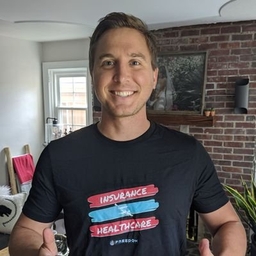
Christopher Habig
Host at Healthcare Americana
Innovator at @FreedomDPC and host @healthamericana. Insurance does NOT equal healthcare. #directprimarycare #dpc
Articles
-
1 month ago |
kevinmd.com | M. Bennet Broner |Leslie Gregory |Paul Pender |Christopher Habig
Over 80 percent of people are discontented with their medical insurance, whether provided by the government, their employer, or a commercial company. Common complaints are cost, increasing prices, and limited or rejected coverage. Regardless of the insurance’s source, we, the citizens, pay the bill through higher co-payments, deductibles, or premiums. Thus, their future payments increase when people request increased coverage for specific treatments, tests, or conditions.
-
1 month ago |
kevinmd.com | Kayvan Haddadan |Leslie Gregory |Paul Pender |Christopher Habig
The health care system, in theory, operates on one fundamental principle: to prioritize patient welfare. Yet, contemporary systems in many regions, particularly the United States, have increasingly veered off course, entangling themselves in a jungle of bureaucracy, regulation, and profit-driven motives that obscure the vital role patients play as the focal point of care. The result is a system riddled with inefficiencies, frustration, and barriers to optimal health care delivery.
-
1 month ago |
kevinmd.com | M. Bennet Broner |Sara Pastoor |Arthur Lazarus |Christopher Habig
In numerous writings and venues regarding physician practice, the claim is made that “physician education is lacking in nutrition, geriatrics, care for non-cisgender people, relating to patients in general, cultural respect, equitable treatment, etc.” While all of these suggestions have merit, to what extent would they lengthen the already most extended medical school curriculum among developed countries?
-
1 month ago |
kevinmd.com | Jillian Rigert |Sara Pastoor |Christopher Habig |Eva Feder Kittay
After I was medically discharged from the military for seeking mental health treatment and transitioned out of surgery residency to recover, I isolated in guilt, shame, and exhaustion. Despite my surgery program director telling me repeatedly that he was not disappointed in me and supporting me fully in my decision to transition into a different specialty where I could better take care of my health, I felt worthless and like a complete failure.
-
2 months ago |
kevinmd.com | Arthur Lazarus |Leslie Gregory |Paul Pender |Christopher Habig
The term “core competency” was coined by management experts C.K. Prahalad and Gary Hamel in their influential 1990 article titled “The core competence of the corporation,” published in the Harvard Business Review. Prahalad and Hamel defined core competencies as the unique capabilities or advantages that a company possesses, which are critical to its ability to achieve competitive advantage and long-term success.
Try JournoFinder For Free
Search and contact over 1M+ journalist profiles, browse 100M+ articles, and unlock powerful PR tools.
Start Your 7-Day Free Trial →X (formerly Twitter)
- Followers
- 155
- Tweets
- 901
- DMs Open
- No

RT @DutchRojas: Health systems don’t compete, they consolidate. Buy out physicians, control referrals, dictate prices. Independent phys…

RT @DrDiGiorgio: Medicaid: so cost effective that the clinical outcomes are the same as being uninsured. https://t.co/RXIPF6G3De Medicaid…

Can we ever trust our healthcare system again? Big question. In this episode, we dig into WHY people have lost trust in American healthcare and what we can do to fix it. 🎧 Listen here: https://t.co/old2qdbKwy #HealthcareReform #MedicalTransparency #PatientTrust